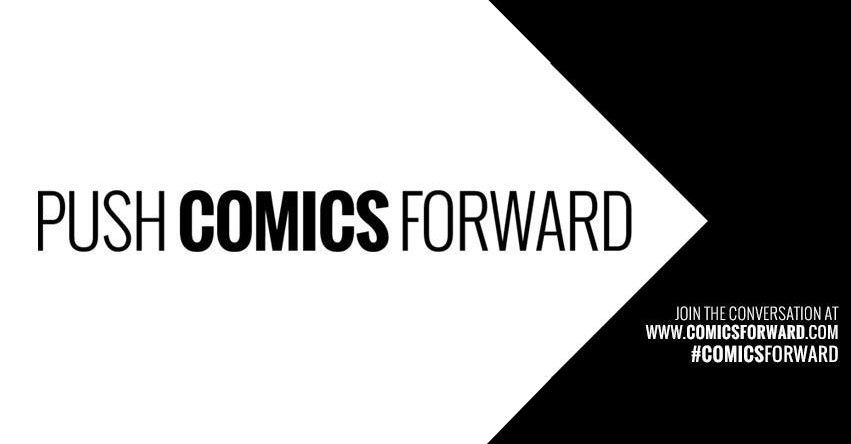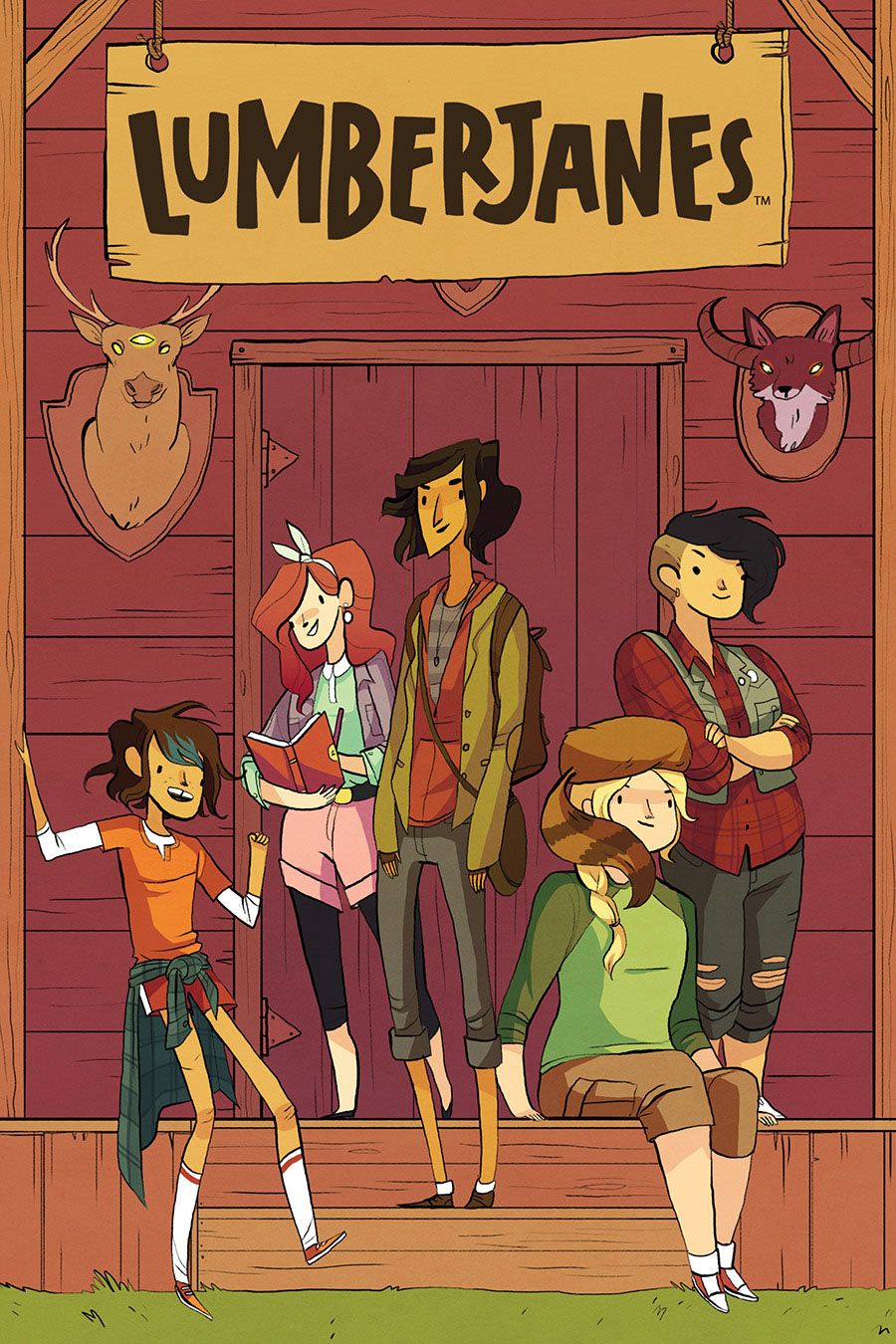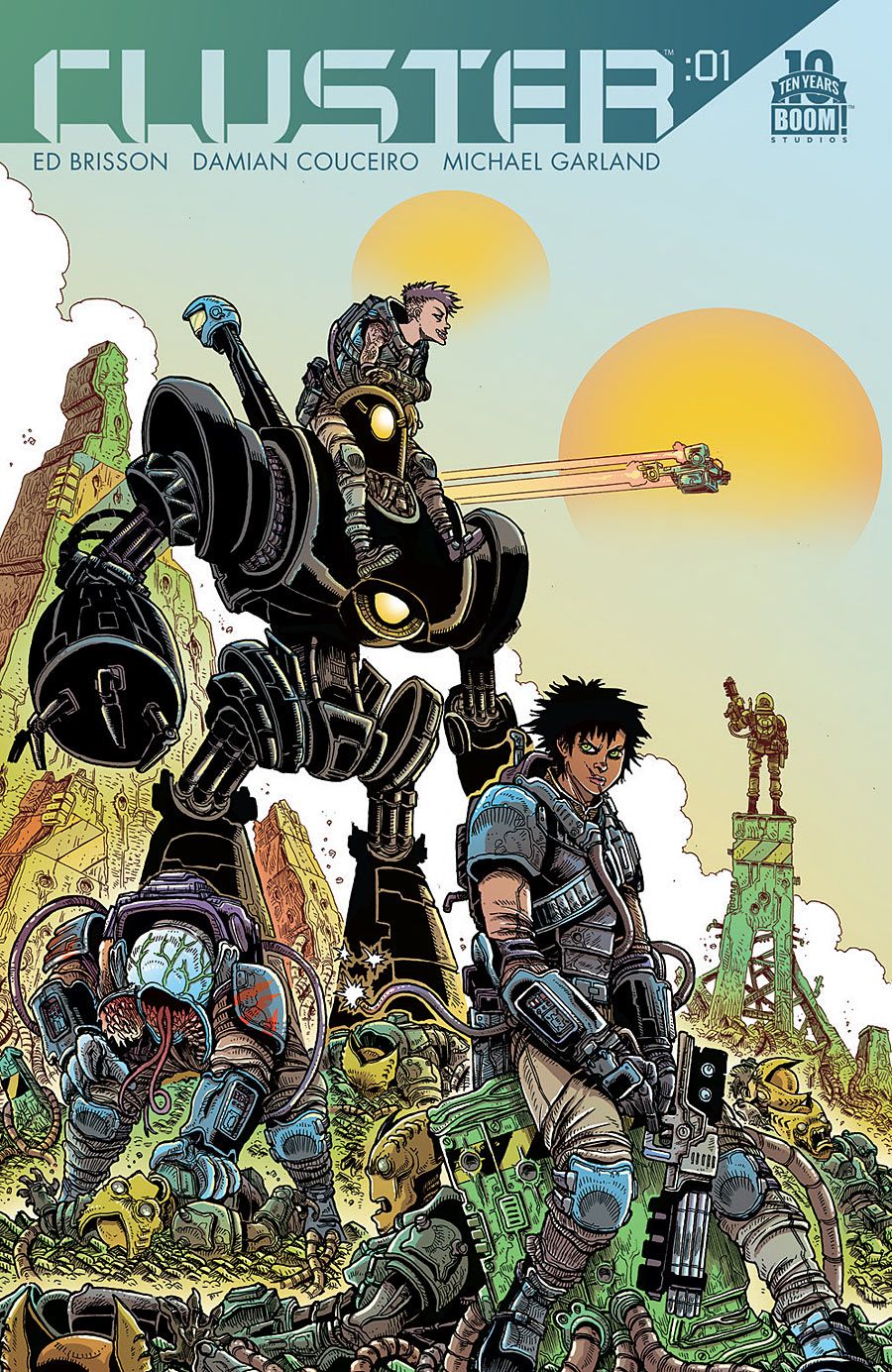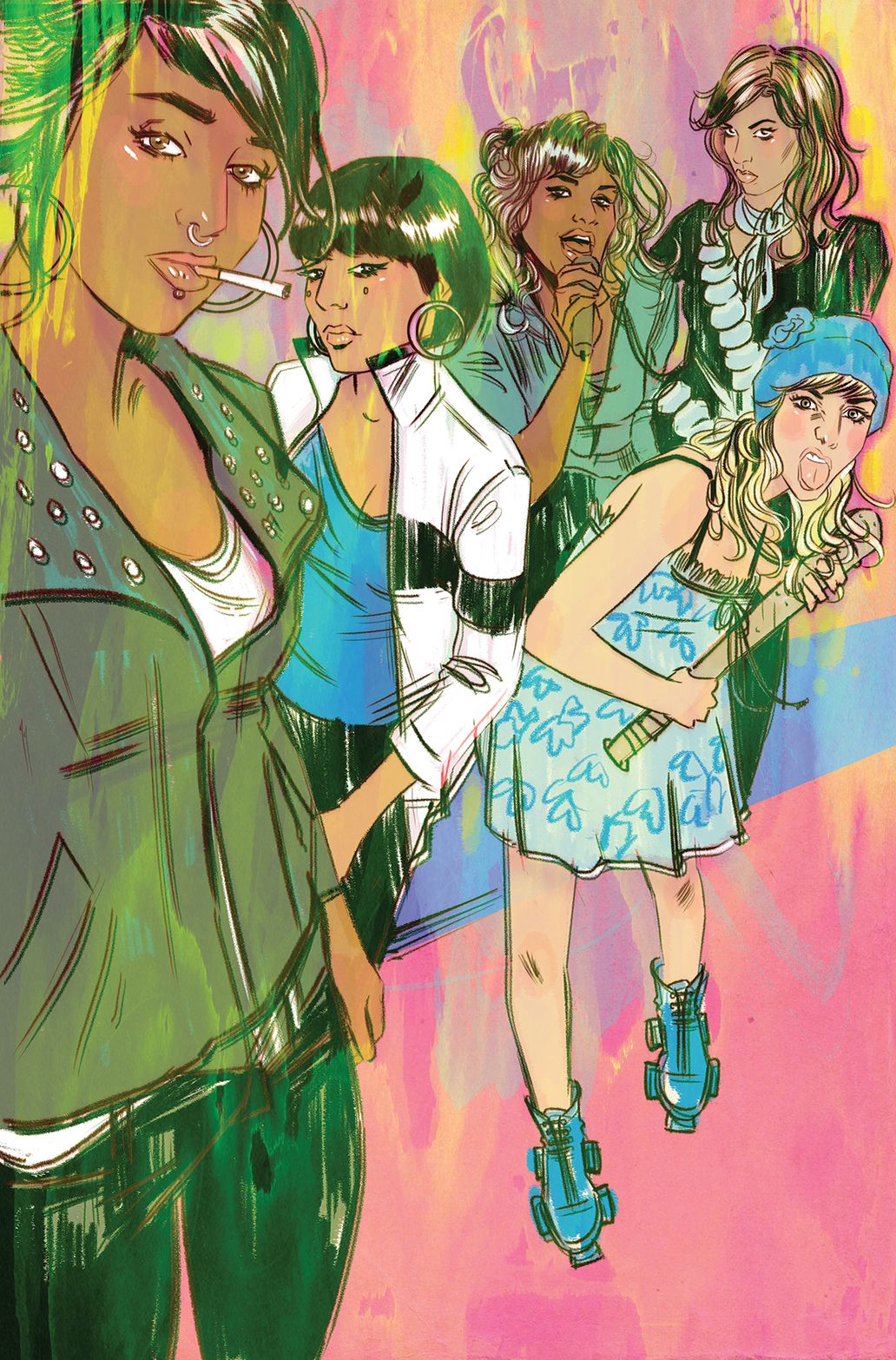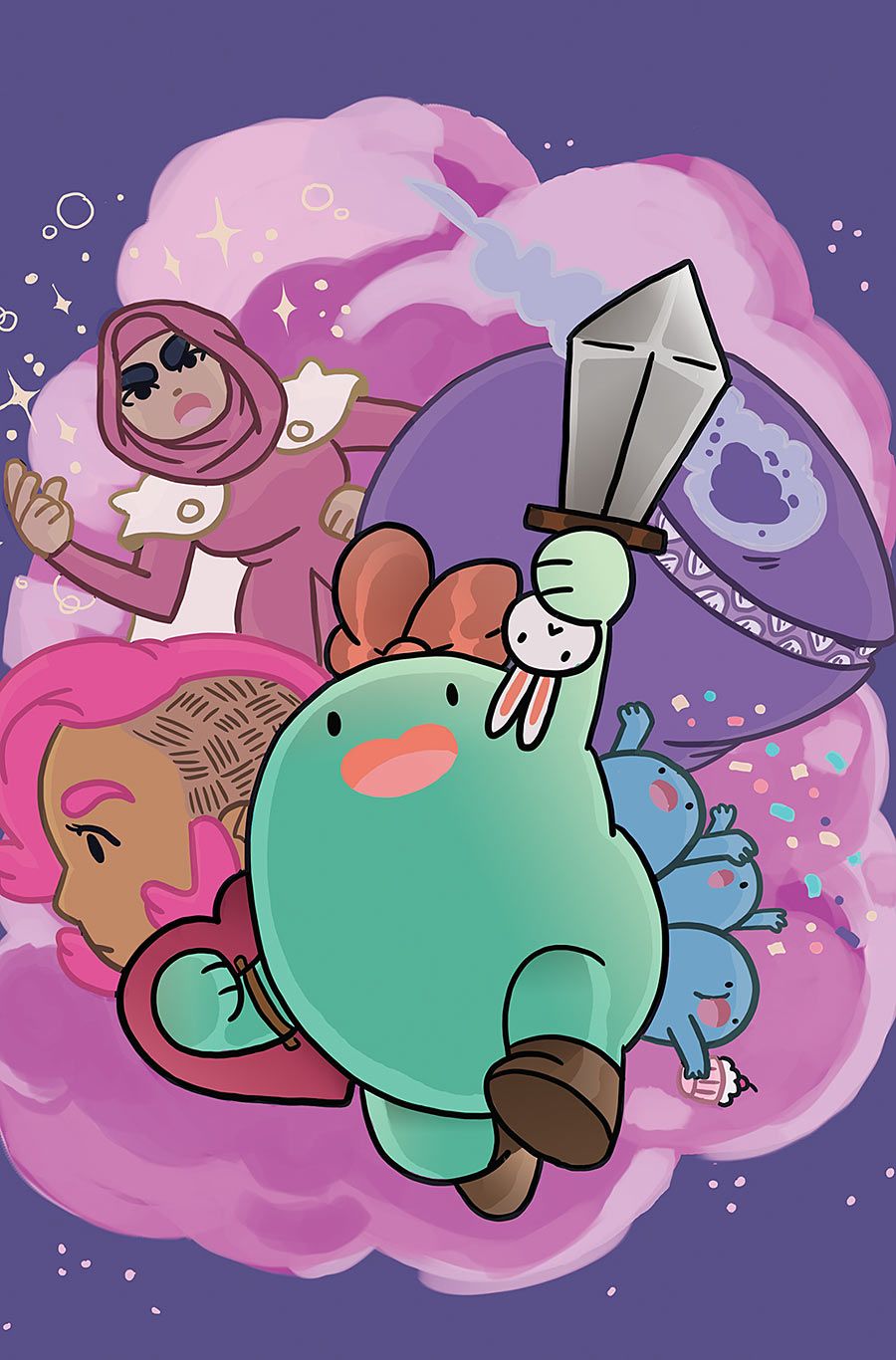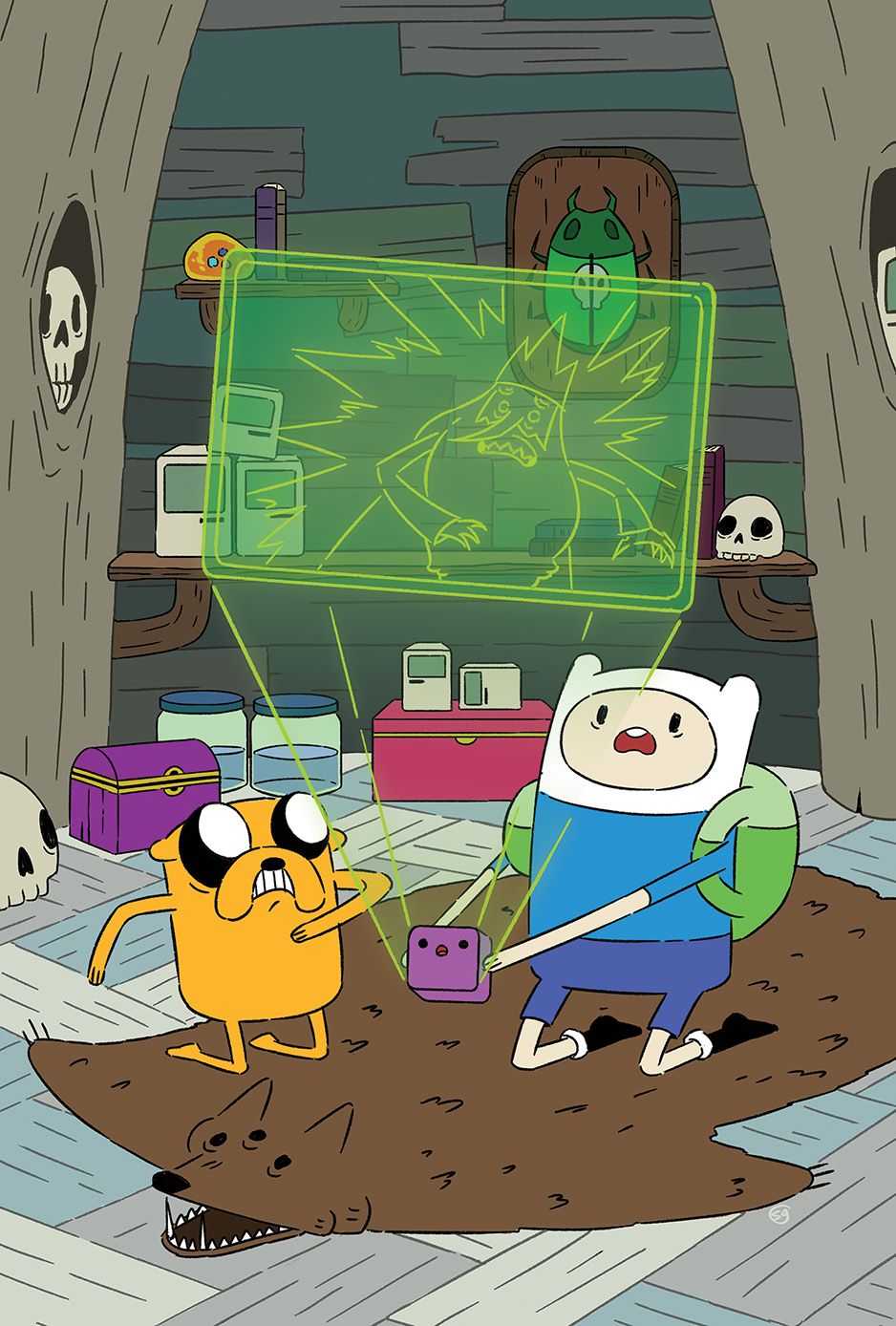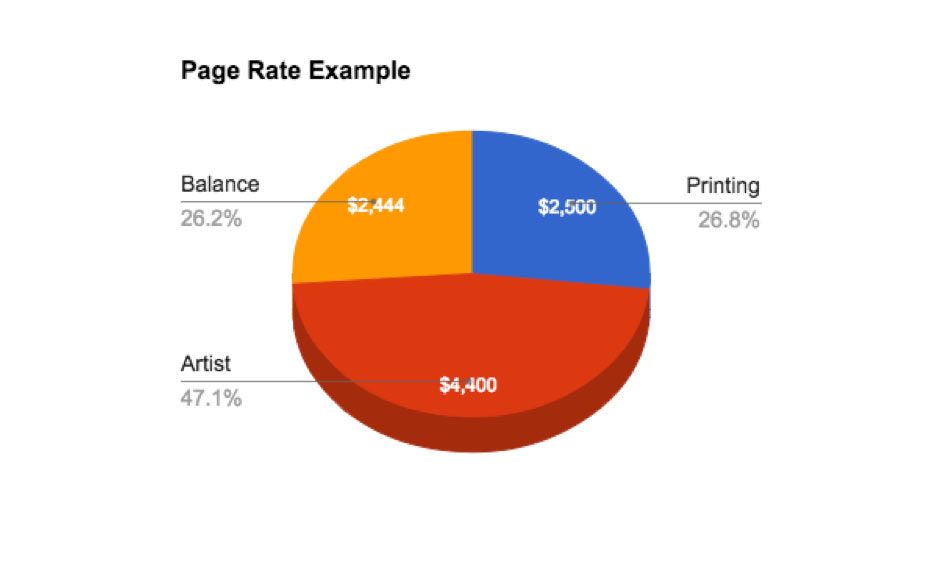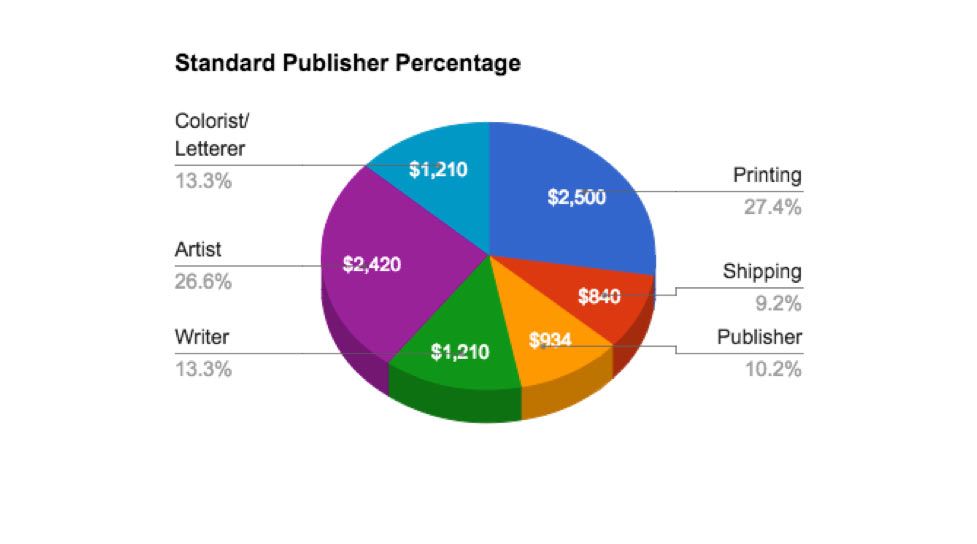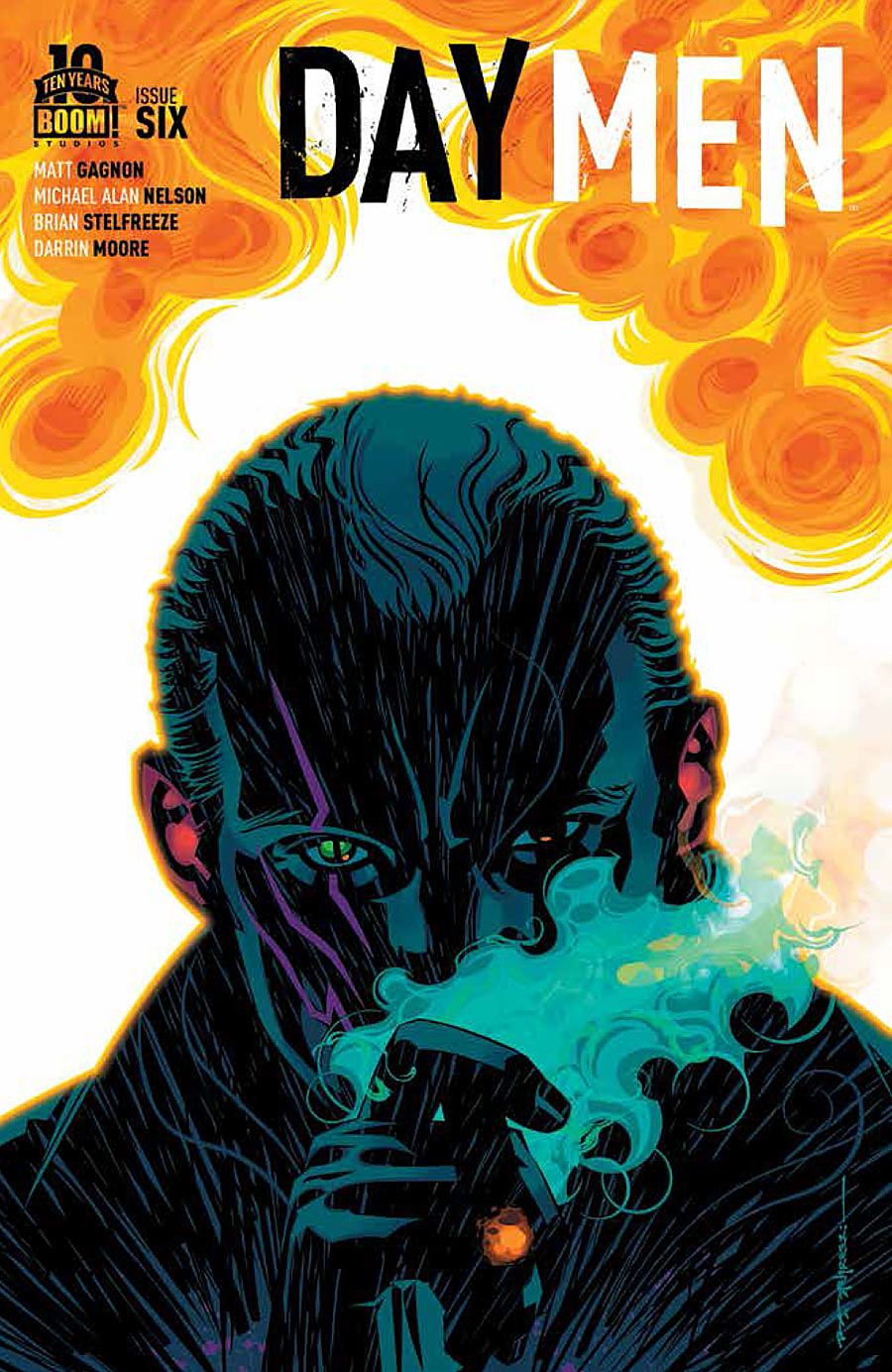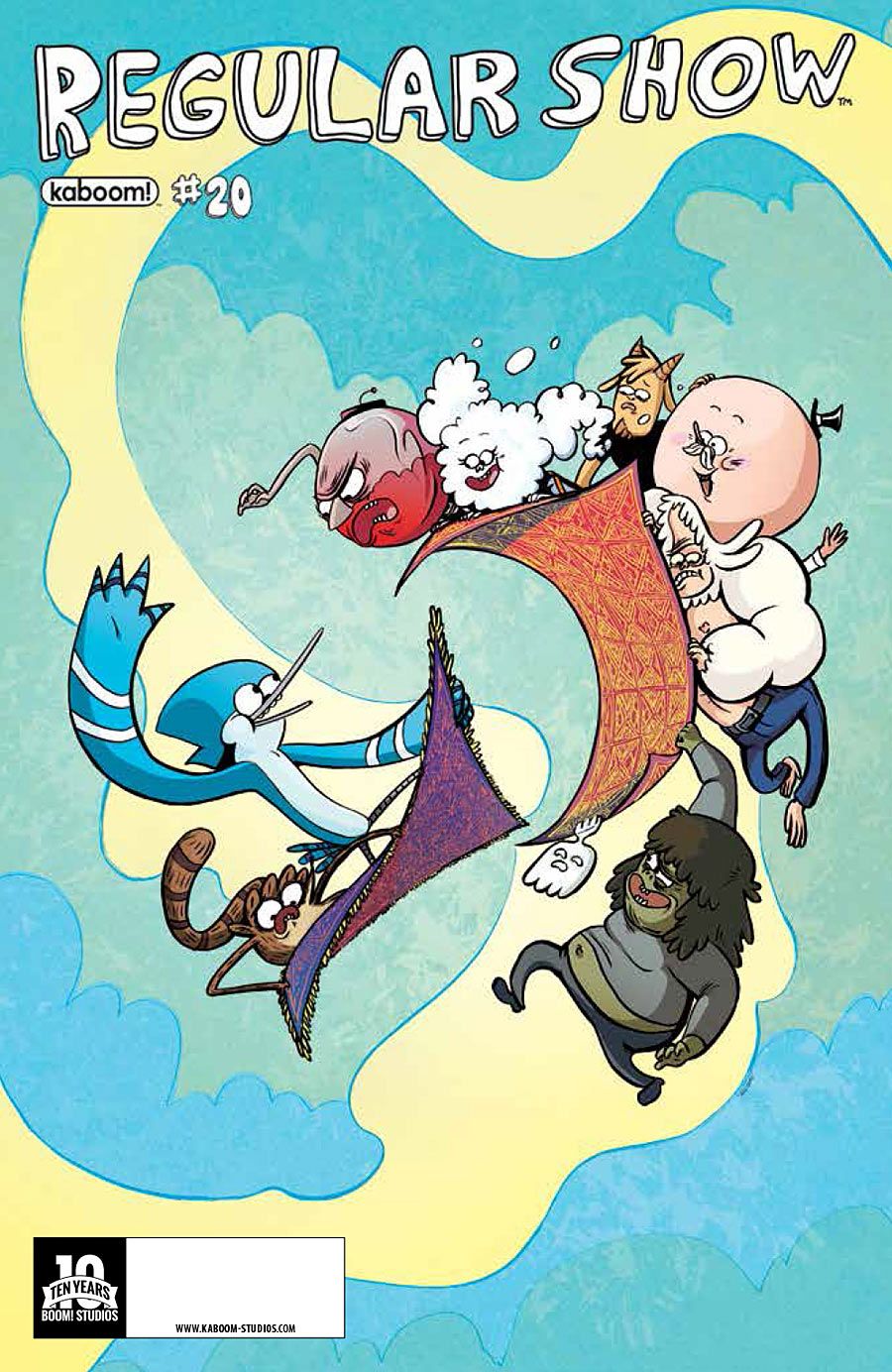In late January, monthly retail catalog "Previews" published an editorial by BOOM! Studios co-founder and CEO Ross Richie where he introduced "Push Comics Forward," an initiative intended to highlight changes and new series that could "make a new Golden Age" of comics. Though the commentary was focused on BOOM! Studios releases, Richie also mentioned that "Push Comics Forward" was about more than promoting his company's titles -- and the associated "#comicsforward" hashtag was used to spark general industry discussion.
Much of the response to BOOM! Studos' initiative has been positive, with early praise from creators including Kelly Sue DeConnick and former BOOM! editor-in-chief Mark Waid. Yet there have been vocal detractors, as well, raising criticism over BOOM! Studios allegedly not paying a fair page rate to creators, or for co-opting existing sentiment with the real goal of bolstering their own profile.
Ross Richie Forecasts BOOM! Studios' Busy Hollywood Slate
With "Push Comics Forward" now more than a month old, CBR News spoke to three of the key figures involved -- Richie, President of Publishing & Marketing Filip Sablik and Brand Manager Christine Dinh -- to discuss how the initiative has been received thus far, to respond to criticism of page rates and creator ownership and to hear how BOOM! differentiates "Push Comics Forward" to previous, similar efforts.
CBR News: It's now been a few weeks since BOOM! Studios introduced its Push Comics Forward initiative. Overall, how pleased are you with how the message has been received among the comics community?
Christine Dinh: I could not be more pleased and humbled at the amount of support the message received right out the gate, not just from fans, but also creators, retailers, press and industry pros. The core of the message resonates with a lot of people, and not because we attached a hashtag to the sentiment. There has been a slow shift of change in the industry. It's been present in the web and indie publishing community since the beginning. Mainstream comics are just now catching up. I'm overwhelmed by how many people voiced the change they wanted to see, and celebrated the creators, publishers, editors, and pros who are pushing the medium forward and ensuring the medium continues to exist and thrive.
Ross Richie: Filip and I just got back from the annual ComicsPRO meeting with some of the direct market's best and brightest retailers and we were thrilled and blown away by the reception we received to the Push Comics Forward message. As Christine said, the mainstream direct market has been taking some really positive steps over the last couple of years, but we can all go much, much further. At the core of it, the team felt like it was important that a mainstream comic company took a public position on pushing these things forward.
There has certainly been positive reception to the initiative, but it also sparked some heavy criticism towards BOOM! as a publisher. Was this an unexpected reaction? Was it viewed internally as more criticism towards the initiative itself, or BOOM! as a whole?
Sablik: On some level, anytime as a company you take a public position on something, you expect criticism. So on that level, we were prepared to field some criticism and even negative reactions. When we decided to launch Push Comics Forward, it was because we knew that it was something that as a team we believed in and something that we've demonstrated in action for quite some time now. We know it to be an initiative, a movement that we wholeheartedly believe in. We've been walking the walk whether it's in the makeup of our team, the diversity of the creators we work with, or the type of projects we publish. We sincerely believe that this is an important conversation for mainstream comic publishers to have and this is the moment to have it.
In terms of the criticism, it was a bit of both. Some folks felt like maybe we were trying to appropriate something that creators in indie comic publishing, webcomics and self-publishing circles have been doing for years, which certainly wasn't the case. If anything, we want to amplify their voices within the mainstream direct comic market. Others may have felt like BOOM! specifically wasn't the best publisher to take this public stance.
Richie: Comic books have never had this level of cultural relevance and interest. As an industry we have a real opportunity, and a responsibility, to grow the audience -- and when I say "we" I don't mean BOOM!, I mean the industry as a collective whole. When a new potential fan discovers the medium for the first time, I want there to be a book waiting for them, whether it's one that they see themselves reflected back in, a genre they love, or a point of view they didn't even realize they were looking for.
BOOM! would love to have everyone -- other publishers, creators, press, retailers, fans -- engaged in this conversation and trying to make that a reality, but even if, at the end of the day, it's just us championing this idea, that's OK. Because even if it's just the small piece of the market that we occupy, we want those potential fans to know there's a place in the mainstream market they are welcome.
Filip, from your perspective, what are your thoughts on what prompted that reaction -- that BOOM! specifically wasn't the right fit for this stance?"
Sablik: We can't pretend to know exactly what prompted reactions amongst other people and honestly would require more hubris than I have to try. On a broad level, Push Comics Forward is the type of statement that lends itself to folks filtering it through their own goals. As an example, and I'm not ascribing this belief across the board, but if someone reading about Push Comics Forward felt the only way to really move comics into the future is through original, creator-owned series then in their view perhaps BOOM! wouldn't be the publisher best suited to take a position on it, since we also publish licensed work. At the end of the day, I think we have a great record of reflecting the values we put forward in Push Comics Forward.
Generally, I think there's the cynical interpretation that it's an uplifting message meant to comment on comics as a whole, yet it's coming from a specific publisher and ultimately aimed to boost that publisher's brand. I'm guessing that wasn't a response you didn't expect -- the second post on the Push Comics Forward website is about an Image series. How would you respond to the notion that this is more about building BOOM! than comics as a whole? And how important of a distinction is that?
Dinh: I can't say we didn't expect the cynicism and skepticism; we weighed heavily how people might interpret what we were saying/doing, how we did it, the implications, etc. What was important to us was that we talked about it sincerely and respectfully. The mission of Push Comics Forward isn't to be 100 percent saccharine uplifting -- it's true we want to celebrate the many, many people who were doing incredible things for the industry, but it was also about bringing to light the fact there is more to be done.
For the industry to thrive and grow for decades to come, we need everyone to be succeeding. We're in a unique situation where everyone is crucial to comics' survival -- the creators creating the comic, the publishers producing the comic, pros and press bringing awareness to the comic, brick-and-mortar and digital storefronts selling the comic, and fans buying the comic.
This was an opportunity for BOOM! to embrace what many individuals have been doing and connect that to a mainstream publisher who needed to reach out and say, "Yes, we support what you're accomplishing; you're not in it alone."
Yes, I want BOOM! to be here for several more decades, but I also want Image, DC, Marvel, Archie, among others; small press; and web/zine creators all there and flourishing as well. BOOM! didn't want to celebrate its 10-year anniversary looking back at the past; we're looking at the next couple years and decades and we're not in it alone.
Ross Richie Explains His Big BOOM! Theory, First-Look Fox Deal & More
To touch on a few specific issues, there have been multiple tweets using the #ComicsForward hashtag accusing BOOM! Studios of paying a substandard rate to freelancers. Here's one specifically from Ryan Sohmer: "You don't get to preach about the future of comics when your company offers the lowest page rates in the industry. #comicsforward" Along with allegations of low pay, there's also been criticism over BOOM's ownership deals with creators. How does BOOM! respond to these comments?
Sablik: Creator ownership, participation, and page rates are absolutely an important topic of conversation. Our intent behind #comicsforward was to celebrate, in a positive fashion, the things that were being done in the industry to promote inclusiveness, accessibility, diversity, and representation -- this is a topic I've been wanting to discuss for some time. Hopefully you'll indulge me in a lengthy response to a complex issue.
At BOOM! specifically, we budget each project carefully and always strive to pay creative talent on the project the best rates we can. Do I wish we could pay everyone more than we do? Absolutely. But then again, I tend to think that virtually everyone working professionally in comics is underpaid for the level of talent they bring to the table.
I do believe some of the sentiment of low pay or underpayment comes from most folks not really having an understanding of the economics of publishing comic books. Jim Zub did a terrific breakdown about two years ago and recently updated his experience publishing through Image.
In the interest of increased transparency and moving the conversation forward, I thought it'd be useful to look at some industry medians. Rather than diving into BOOM!-specific numbers, which would require sharing confidential information, I thought I'd compare some public information to break down the economics of publishing comics outside of the Diamond premier publishers (Dark Horse, DC, IDW, Image, and Marvel). This is a fairly broad stroke, but I believe gives a sense of what the reality of publishing comic books is.
According to ICV2, the median sales numbers for non-premier titles in the top 300 comic books [in January 2015] was around 5,850 copies. Bear in mind that for even non-premier "Top 10" publishers, there are numerous titles that fall outside of the top 300 with lower numbers and that median number is after years of positive market growth. Diamond buys comics at 60-70 percent off the cover price. On a $3.99 cover price, you would receive around $1.60 per copy with the more conservative 60 percent discount. This would equal a wholesale total of roughly $9,344. I asked our primary printer, who prints the majority of single issue comic books in the U.S., what it would cost to print those quantities for a new customer, and they said it's $2,500.
Mr. Sohmer says his minimum payment for an artist (pencils and inks) is $200 per page, or $4,400 for a traditional 22-page comic book, which leaves $2,444 left to pay the writer, colorist, letterer, shipping costs, along with any marketing expenses.
Alternatively, working backwards, if you have $6,844 after printing costs, you would need to spend around $840 on shipping expenses, which leaves around $6,000 to divide between the publisher and talent working on the book. If we use what a typical commission for a literary or entertainment agent is as a baseline, a fair share for the publisher might be 10% of the money received, or $934. That leaves $5,066 for the talent or roughly $220 per page, including the cover.
In my experience, it's fairly common for the artist to make roughly twice what the writer makes because they typically can only work on a single book at one time, so for this exercise let's assume the page rate is divided into four parts, with two parts going to the artist, one part to the writer, and the other one part split between the colorist and letterer. That's $110 per page for the artist, $55 per page for the writer, and $55 per page for the colorist and the letterer. That doesn't take into account any marketing or incidental costs. Or if the book is a licensed property, you have to factor in the licensing fee that is due to the company that owns the property, which is typically another 10 percent off the top.
One of the other misperceptions is that trade paperback sales generate a big windfall of revenue on the backend. The average collection from a non-premier publisher on Diamond's Top 300 Graphic Novel list [in January 2015] sold a median 601 copies at a median $13 cover price, which means it added another $3,125 for every 4-6 issues of a series collected. Even doubling that number to account for book market sales, you end up adding around $1,250 per issue once collected.
Again, this is very general information, but it gives a bit of insight into what the current economics of publishing comics is. I believe the best way to fix this is to expand the customer base, broaden the market, and grow sales. There are some who would argue that books that can't meet a certain page rate shouldn't be published at all, but I think that leads to a market that only caters to its existing audience and stifles opportunities to expand the market. If the last few years have shown anything, it's that a more diverse selection of product helps grow sales by bringing new fans into the industry.
Richie: In terms of our relationship with creators that we work with on original projects, it's a partnership model. My goal has always been to create a situation where both the creator and the publisher can win, sharing equally in the success of a project, but where BOOM! as the publisher takes on the upfront risks. It's a philosophy that came from my first project with Keith Giffen a decade ago. Keith felt that if the creator and publisher had an equal stake in the success of a project, their interests would be aligned and it would be easier to do what's best for the project as opposed to what was in our own best interests.
Given that breakdown, is your stance that BOOM! is being targeted unfairly when it comes to page rates and is in fact in the same boat as other publishers of its size?
Sablik: I wouldn't categorize our stance that way necessarily. Some of the criticism we saw regarding page rates was linked to not understanding the economics of comic publishing, which is what I hoped to shine a spotlight on in my response. For BOOM! specifically, we pay the best page rates we can within the constraints of what we sell. Compensation is a worthwhile conversation on an industry-wide level, but ultimately, I believe the best way to improve rates and compensation is to grow the market.
There's also the notion that while #ComicsForward is a new name for the initiative, it's effectively the same message of greater diversity that's been spread among the comics community for years -- there's similarity to the "I Am Comics" movement from last year and "Comics Are For Everybody." How does BOOM! distinguish its efforts from similar previous ones? Do you see any validity in the notion that it's potentially co-opting existing sentiment?
Sablik: I love both of those community campaigns. BOOM! was, I think, the first publisher to participate in the "I Am Comics" campaign. They both did a terrific job of highlighting the amazing diversity of comic book fans. What we hope will separate Push Comics Forward is that it's a call to action to work together actively to shape not just what the industry looks like now, but what we want it to look like in the future. Our aspiration is that it inspires not only creators and publishers to stretch in terms of the type of content they produce, but also encourages the press to expand the creators, content, and formats they cover, and inspires fans to change the industry with the types of books that they support. I may not be a young, female comic reader, but I want to make sure we support projects that my daughters will find inspiring and see their experiences reflected back at them.
Dinh: Echoing what Filip said, the "I Am Comics" and "Comics Are for Everybody" campaigns were equally as important to me. They came about and offered support at a much needed time. To me, it appeared the industry suffered many black eyes in 2014, both in and out of publishing. All of that could have been avoided if more thought was given to respect, care, and representation. This is where I personally struggle. My colleagues and friends outside of comics look at these issues we face and don't understand any of it. It perpetuates the incorrect notion that comics and comics fans are childish who don't know how to engage with each other.
I don't think this is a situation where only one message can exist on the playground. "I Am Comics" is great for shining a spotlight on diversity and lets us own who we are -- that we're proud to be comics. "Comics Are for Everybody" strengthened the message that comics aren't only catered to one narrow demographic. We understand the concern; we've been mindful to not co-opt or proclaim that we're the saviors. Our aim with Push Comics Forward is to support the amazing things people are doing, address what's working and not working, and challenge ourselves to ask what more we can be doing.
What does the future look like for the Push #ComicsForward initiative? Is this something BOOM! is viewing as a long-term campaign? And is there any effort to alter the message in response to the above criticism?
Dinh: Importantly, this isn't a campaign. We're not dumping the sentiment after a few conventions; there's no expiration date here. This is a long-term belief that extends beyond the company. There were valid concerns that are being discussed. I am proud to work with everyone at BOOM!. I'm surrounded by thoughtful, creative, passionate individuals. They took to heart what the concerns are and I can assure you there is a lot of movement behind the scenes. This team is committed to doing meaningful work in and out of BOOM!. Some changes will be seen immediately, others will take time.
Sablik: With any effort like this, you have to continue to process feedback and fine tune the messaging, it's a natural evolution. Our hope is that as more people embrace the conversation, the movement will evolve organically beyond what we've started. What won't change, what doesn't have an expiration date, is BOOM!'s commitment to broadening the medium and making it more accessible, inclusive, optimistic, progressive, and representational. Not because it's en vogue, but because it's ingrained in our core values and in the personalities of the folks who work here.

